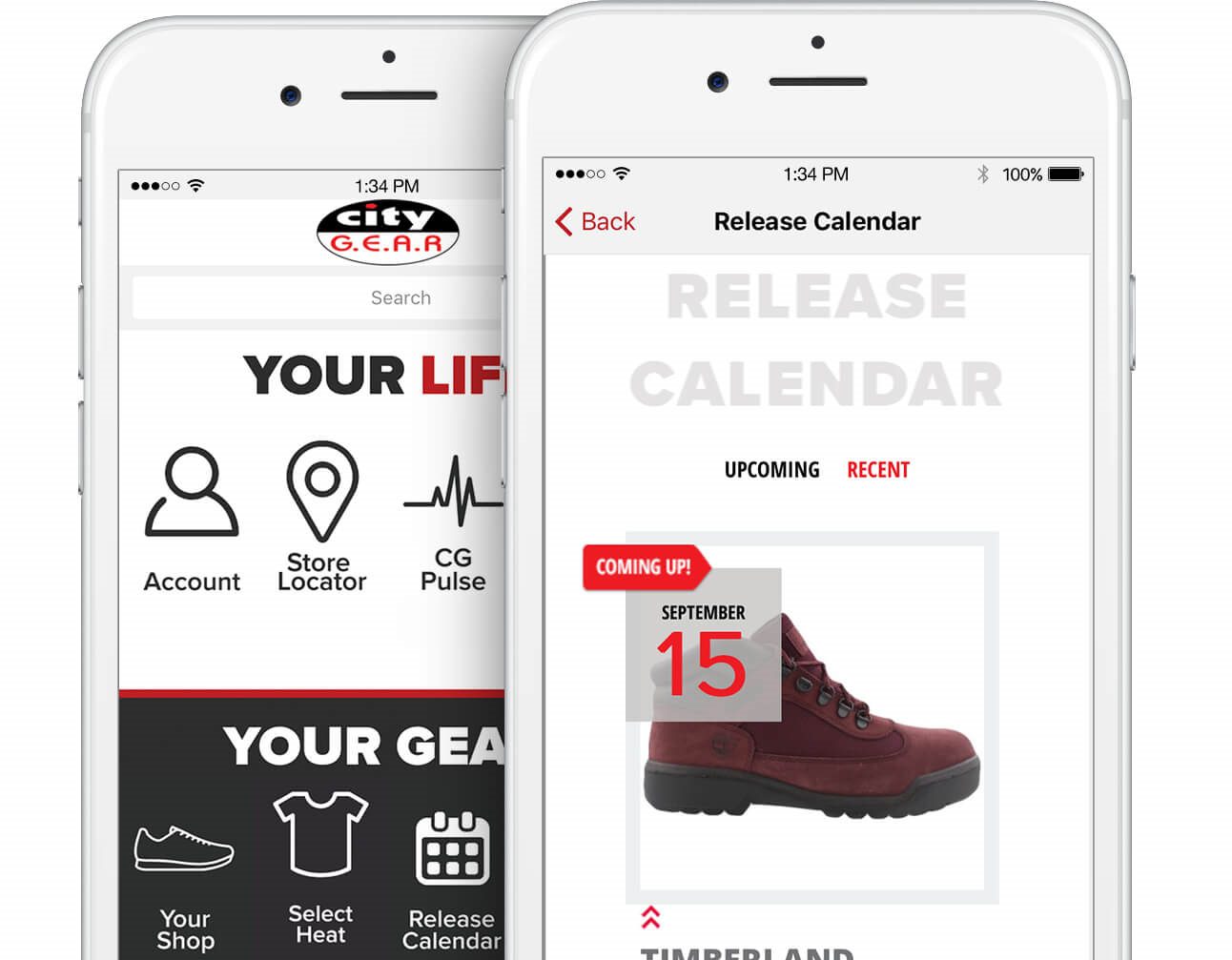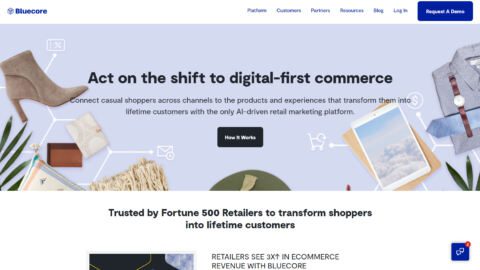As an athletic footwear retailer selling shoes from brands such as Nike, Air Jordan and Adidas, City Gear is in a competitive market where it’s difficult to stand out, even with a customer-friendly mobile presence. To improve segmentation efforts and provide timely and relevant push notifications to consumers, City Gear selected Shopgate to develop its new mobile app.
To promote the launch, City Gear offered in-store incentives to drive traffic to the app, such as 10% off on purchases. The app garnered 17,000 downloads in the first three months and City Gear reported a 79% push notification enablement rate and a $128 average order value (AOV) per purchase. Additional benefits included:
- Advanced segmentation to deliver special offers and release announcements;
- Full real-time app design control; and
- Predictable costs via a subscription-based SaaS model.
“I feel very strongly about push notifications,” said Charles Gray, Digital Marketing Manager of City Gear in an interview with Retail TouchPoints. As many as “71% of mobile users uninstall apps specifically based on annoying push notifications, so we haven’t overtly used them because we don’t want to abuse them. We’re in the process of working with Shopgate to make some creative segments for push notifications. We’re finding ways through other metrics we have to put together email lists based on purchase history or location purchase history.”
Gray said the goal is to send out 10 segmented push notifications per month that are relevant to customer preferences without being annoying. The company also plans to focus on geolocated push notifications in the future to segment shoppers by region or district.
“While we’re just starting down the rabbit hole of segmentation and push notifications, we’re putting deep login customization on our must-list by the middle of 2017,” Gray said. “For example, we’d like to build as many as three separate customer profiles for each mobile shopper based on their previous purchase habits. The shopper could click a customer profile and it would automatically load just the sizes and colors of brands that they like. We’re also trying to define specific benchmark KPIs to exactly track success, because we’ve had a lot of downloads, but we want to see exactly what’s profitable through the app.”
Shifting From Mobile Site To Mobile Experience
When City Gear first launched its e-Commerce business in 2014, the retailer also built a mobile-optimized site that offered the same functionalities as the traditional e-Commerce site. But the mobile site often felt and functioned like a “lite” version of the main site, instead of its own experience, according to Gray. After launching web hosting and promotion services, the City Gear team realized its mobile presence continued to attract a much larger audience of customers, and it needed a more dedicated mobile presence to facilitate the new growth.
The Shopgate platform includes a full suite of design widgets that enables City Gear to take full control over the look and feel of the apps, including the option to host a dedicated culture page, shoe release calendar and brand inspiration page. Marketers and merchandisers can edit the app within the platform without having to create code. Gray noted that the new platform enables the marketing team to perform tasks they couldn’t do for the mobile experience beforehand, such as creating customized splash frames, embedding content and building out more product categories.
“In footwear, people are more brand loyal than retail giant loyal,” Gray said. “If we’re trying to get people to come to our app, it all depends on the quality of the experience — whether our SEO is optimized, we have the best assets, or we have the best copy.”













